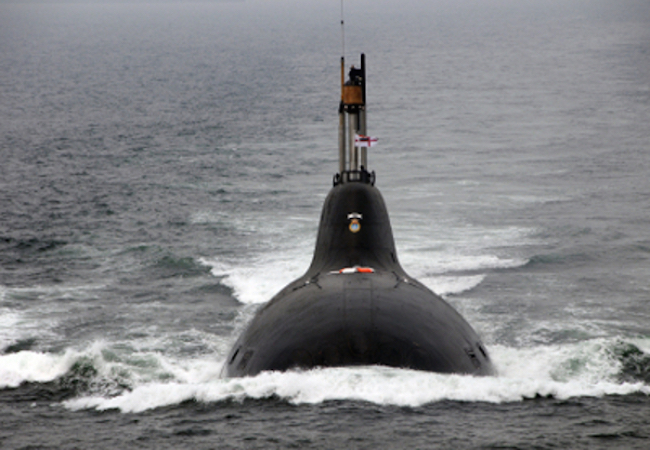
By M Waqas Jan
The recent escalation in India-Pakistan tensions resulting from the deteriorating human rights situation in Kashmir has since its outset carried the threat of spiraling into the realm of the nuclear question. With both India and Pakistan having already fought three full-fledged wars and a series of medium to small-scale skirmishes, Kashmir’s potential of turning into a major nuclear flashpoint has remained a constant threat for the 2 billion people living in South Asia. Since both countries declared their nuclear weapons capability, this looming specter of nuclear war has been leveraged by both India and Pakistan to varying degrees and effects.
For instance, Pakistan’s approach to this issue is encapsulated in the following two objectives. The first being to serve as a viable deterrent to the conventional asymmetry that exists between its own and India’s armed forces. And the second to help internationalize the Kashmir dispute by leveraging the international community’s commitment to preventing nuclear war. This can be thus understood as having both a regional and a wider international dimension.

India’s regional approach on the other hand was also to an extent aimed at preventing any military incursions or adventurism from Pakistan. Its commitment to a ‘Retaliation Only’ or No First Use policy announced shortly after the Pokhran II tests (1998) however had formed a major component of India’s attempts at internationally projecting itself as a responsible nuclear weapon state. At least that was the impression given by the draft report of the National Security Advisory Board on the Indian Nuclear Doctrine dated August 1999. Yet, in last week’s statement given by Indian Defense Minister Rajnath Singh, exactly two decades later at the very site of the Pokhran II tests, a major departure from this policy was witnessed. Paying tribute to former Prime Minister Atal Bihari Vajpayee and his legacy as one of the architects of India’s NFU Mr. Singh had stated that “While India has strictly adhered to this doctrine (of No First Use), what happens in the future depends on the circumstances.”
This question of India renouncing its NFU stance has already been doing the rounds in academic and policymaking circles for quite some time. Yet it has always been downplayed or negated by one argument or the other. For instance, Manohar Parrikar during his stint as the Indian Defence Minister in 2016 had alluded to the possibility of India considering a pre-emptive strike in a marked departure from the stated NFU policy. The statement which was made at a public book launch however was qualified by the Minister as being his personal opinion and not an official policy statement. In contrast, the above statement given last week by the current Indian Defence Minister represents perhaps the clearest and most direct articulation of India’s renouncement of the NFU at a pre-scripted gathering. Not to mention the fact that Mr. Singh tweeted the same from his official twitter account the same day during one of the most heightened periods of tensions over Kashmir.
The significance of Mr. Singh’s statement has been further echoed by Vipin Narang, one of the leading academics focusing on India’s nuclear program. In a recent interview he stated that while the credibility of India’s NFU policy had already eroded long ago, all this move has done is bring even greater uncertainty and instability to an already tense situation. He stated that while India’s NFU policy was already perceived as being irrelevant by Chinese and Pakistani strategists, it had still carried a self-purported image of India as a responsible nuclear weapon state to a wider international audience. That despite its hollowness the NFU still projected a semblance of stability and acceptance of a certain responsibility befitting a rising power.

Yet, the present BJP government by steadily reneging on its commitment to the NFU has exhibited a resolve and willingness to upend the status-quo at the expense of India’s international credibility. By politicizing nuclear brinkmanship as chest-thumping machismo, what this Indian government has essentially done is willfully project a sense of ambiguity regarding its nuclear posture. While such a move may generate rapturous applause amongst the BJP’s predominantly far-right electorate as well as some of the most prominent hawks within the country’s politico-military establishment, what it does is estrange India’s commitment to certain ideals that may still hold certain weight and diplomatic capital in its dealings with the international community. What’s more it also puts the onus on both Pakistan and China to quite visibly re-think their strategic calculus leading to even greater risks and uncertainty with regard to regional stability.
Hence, while the BJP under Mr. Modi represents a far-cry from the more moderate and careful tact of Prime Minister Vajpayee, one wonders whether anyone else in the Indian leadership is able to look past the self-aggrandizing hubris that characterizes this government. The kind of hubris that considers India’s tremendous economic rise as affording it the ability to renege on universally acclaimed ideals of peace and stability. All while pandering to a segment of its population’s basest instincts driven by greed and a misplaced sense of supremacy.
*This post contains affiliate link(s). Click here for Affiliate Disclosure.




